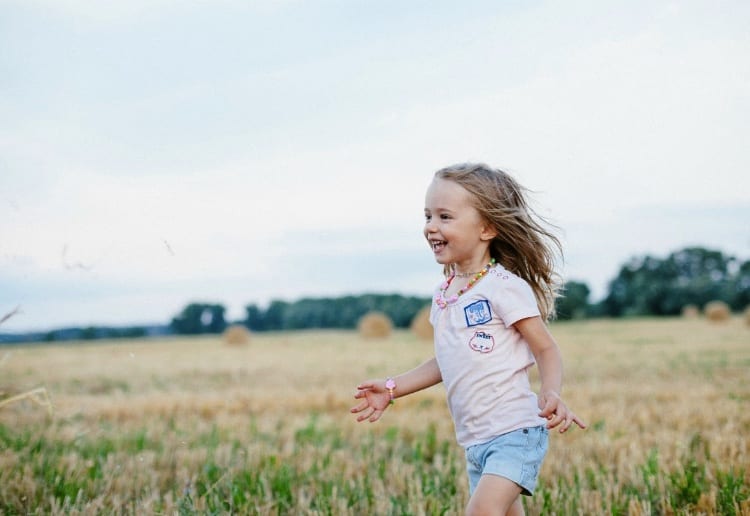As parents, we want to be role-models for our kids and lead by example, but we also want to help them build healthy habits they’ll enjoy on their own. Here are some reasons why outdoor activities are essential for the wellbeing of our kids.
Our modern-day pace of life has become dependent on technology in so many different ways, so our kids rely on various gadgets almost constantly. In turn, this keeps them busy enough to neglect all the wondrous perks of being outside. Understanding what nature can do for your kids, and how you can entice them to spend more time outside is a great start in transforming their time, and their long-term physical, emotional, and psychological wellbeing.
Here are a few actionable tips you can take to heart and inspire your little ones to make the most of what Mother Nature has to give.
Enhancing immunity and social skills
Vitamin D, getting their heart rate up through all that running and jumping, and keeping their joints and muscles resilient and nimble – these are just some of many ways in which your kids’ bodies will benefit from outdoor play. Add to that, exposure to different germs and dirt actually boosts your kids’ immune systems for the long haul. As your little ones play with their friends, siblings, and with you, they’ll also learn all the social intricacies of cooperating, team play, and creative exchanges. Learning different social skills through outdoor play is as vital as it can be on any other occasion in their life.
Learning and creativity
Have you ever considered that your little ones could enjoy gardening? Well, this mindful, Earth-loving activity is a great way for you to bond with your kids, help them develop motor skills and better dexterity, and beyond all, empathy. For starters, depending on your kids’ age, find the right gardening tools that won’t be too big or heavy for them to handle. Also, choose colourful items and above all, look for perfectly safe tools that will let them focus on the task ahead instead of causing you to worry non-stop. Take your time to teach them how to tend to your plants, and choose the right time of day for them to soak in the sun and still stay sun-safe with ample sunscreen and a hat.
Patience and mental fortitude
Self-reliance is a key skill we all want to teach our kids, but sometimes, it’s best learned through challenging activities that don’t focus solely on endurance and stamina. Take golf as a perfect example of a sport that puts all of your mental faculties to the test, together with your levels of patience and resilience to failure. From choosing the right club for each situation to learning how to use the wind to their advantage, your kids can become quite the strategists while enjoying this sport. They’ll learn how to pick and use their golf accessories for different golfing situations, and they’ll learn how to stay safe and think of the safety of others on the golf course, too. Making their own decisions and evaluating the gear for each specific situation teaches them responsibility, but also helps them develop their own opinions, preferences, and above all, patience.
Mastering independence and decision-making
Whether your little one is taking part in a basketball game, or a martial arts sparring test, they’ll need to think on their feet – quite literally so. These decisions, risk assessments, and other estimations happen in a split second, and sometimes, that’s precisely what your kids will need later in life. Yes, they’ll learn how to play as part of a team, but they’ll figure out their role in their team, and in their community, by taking part in such playful instances. While the fresh air does stimulate them, keep in mind that there will always be distractions such as other kids cheering, parents, cars in the nearby street, and the like. When they learn how to make snap decisions in favour of their team in such situations, they’ll grow even more.
Cognitive growth
Outdoor activities don’t boil down to organised, scheduled training sessions all the time. Simply put, the idea of unstructured play outside is something that all kids need in their early development, especially for the sake of their cognitive growth. When they play with siblings and peers, they learn the ins and outs of team play, they share toys, learn how to communicate, organize, let their creative thoughts flourish, exchange ideas with their playmates, etc. Let them define their own games (within what’s deemed safe for their age), and they’ll grow from each play session they devise on their own.
Making your kids happy
You’ll see many parents push their kids into too many extracurricular activities just to keep them busy or to add more appealing skills to their future college applications. As noble as this may seem, it might not be in line with what makes your kids happy. Finding an activity that blends health and happiness is the right balance to choose in this situation. For instance, taking up a sport such as cycling can be not just a great addition to their future CV, but also something that makes them overjoyed when they rush to another exciting training session. Talk to your kids to find out what they genuinely enjoy before you push for something you feel is right.
The bottom line is, more time outdoors means happier, stronger, more resilient kids who are prepared to greet the world and all of its ups and downs. Of course, outdoor activities aren’t the be-all, end-all of wellbeing habits, but they certainly help kids build a healthy attitude towards themselves, their health, their friends, and their responsibilities. Your kids will benefit from their time in nature in many different ways, and encouraging them to do so is a perfect foundation for long-term wellbeing.
What outdoor activities do your kids love? Tell us in the comments below.





















4:40 pm
10:27 am
8:59 pm
11:37 pm
11:17 pm
11:04 am
4:03 am
4:46 am
2:13 pm
9:00 pm
12:18 am
9:44 am
12:45 pm
5:41 am
8:17 pm
11:52 am
2:37 pm
1:28 pm
9:31 am
6:55 am
- 1
- 2
- »
Post a commentTo post a review/comment please join us or login so we can allocate your points.